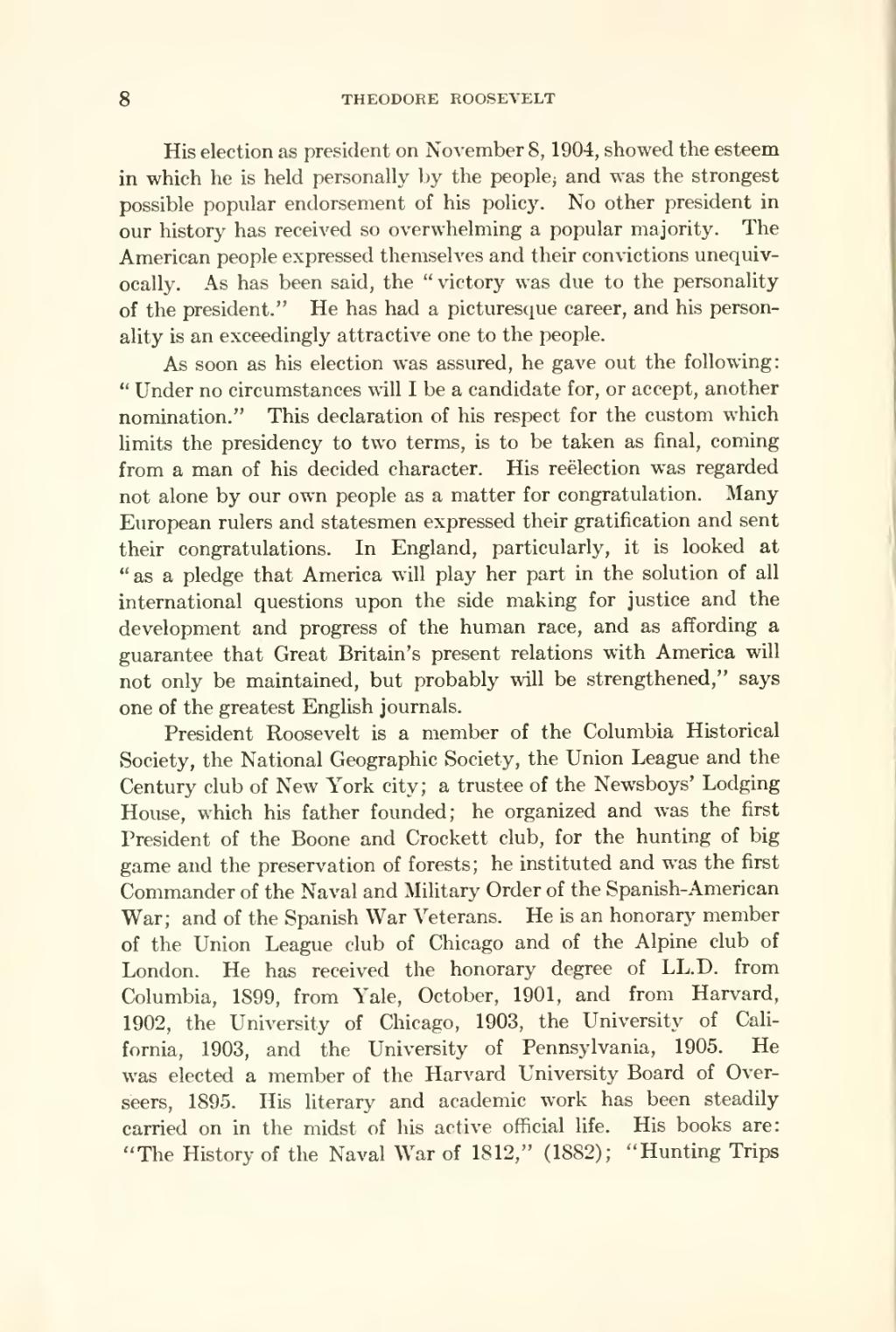His election as president on November 8, 1904, showed the esteem in which he is held personally by the people, and was the strongest possible popular endorsement of his policy. No other president in our history has received so overwhelming a popular majority. The American people expressed themselves and their convictions unequivocally. As has been said, the "victory was due to the personality of the president." He has had a picturesque career, and his personality is an exceedingly attractive one to the people.
As soon as his election was assured, he gave out the following: "Under no circumstances will I be a candidate for, or accept, another nomination." This declaration of his respect for the custom which limits the presidency to two terms, is to be taken as final, coming from a man of his decided character. His reëlection was regarded not alone by our own people as a matter for congratulation. Many European rulers and statesmen expressed their gratification and sent their congratulations. In England, particularly, it is looked at "as a pledge that America will play her part in the solution of all international questions upon the side making for justice and the development and progress of the human race, and as affording a guarantee that Great Britain's present relations with America will not only be maintained, but probably will be strengthened," says one of the greatest English journals.
President Roosevelt is a member of the Columbia Historical Society, the National Geographic Society, the Union League and the Century club of New York city; a trustee of the Newsboys' Lodging House, which his father founded; he organized and was the first President of the Boone and Crockett club, for the hunting of big game and the preservation of forests; he instituted and was the first Commander of the Naval and Military Order of the Spanish-American War; and of the Spanish War Veterans. He is an honorary member of the Union League club of Chicago and of the Alpine club of London. He has received the honorary degree of LL.D. from Columbia, 1899, from Yale, October, 1901, and from Harvard, 1902, the University of Chicago, 1903, the University of California, 1903, and the University of Pennsylvania, 1905. He was elected a member of the Harvard University Board of Overseers, 1895. His literary and academic work has been steadily carried on in the midst of his active official life. His books are: "The History of the Naval War of 1812," (1882); "Hunting Trips
